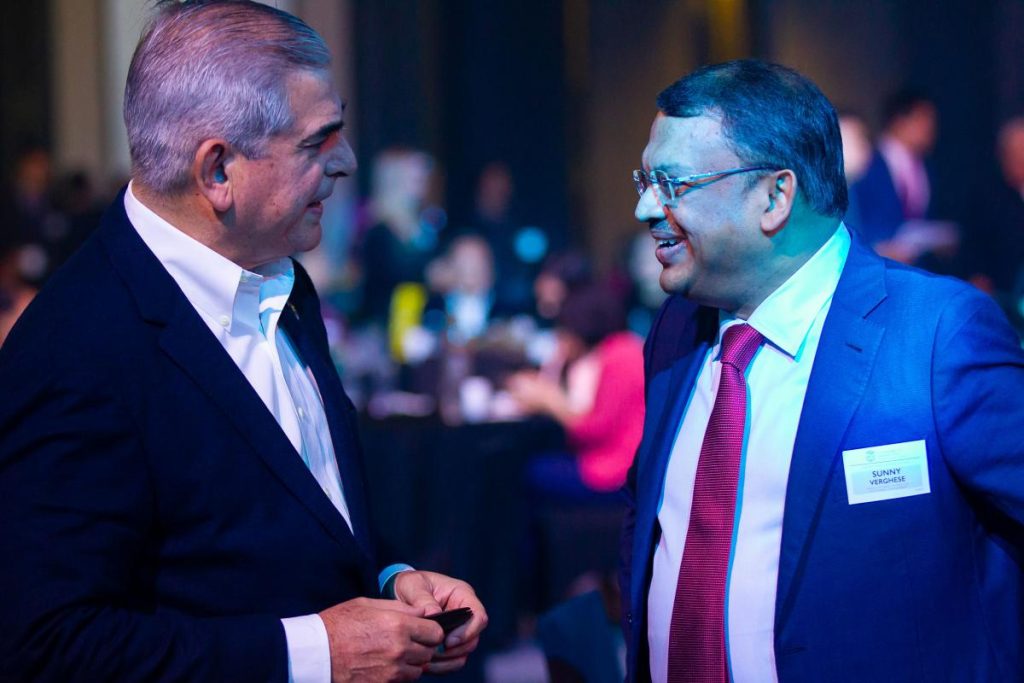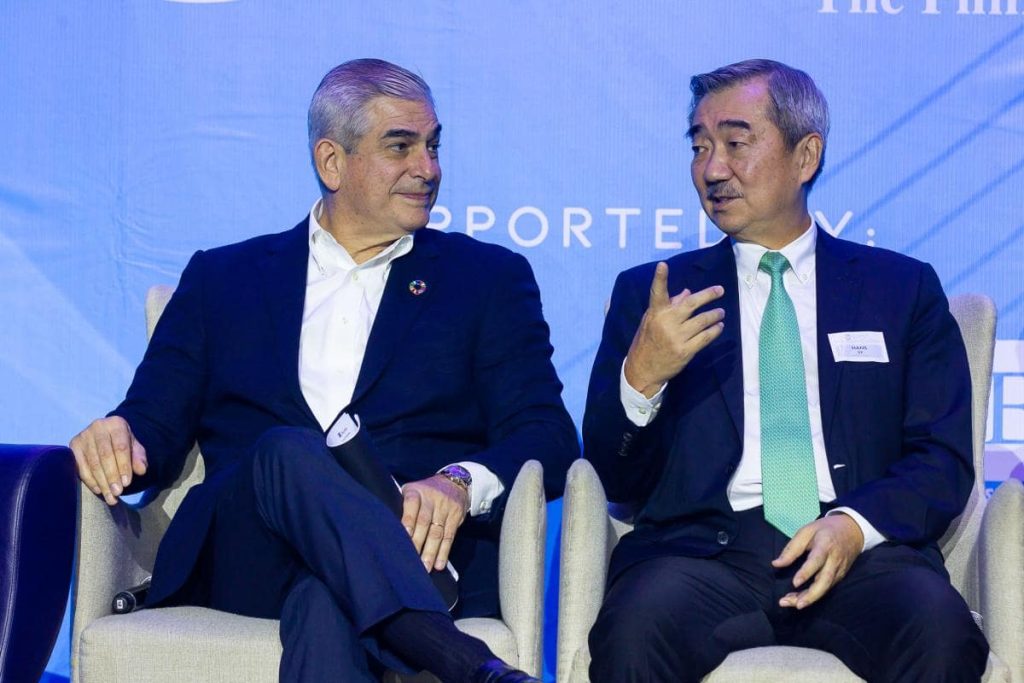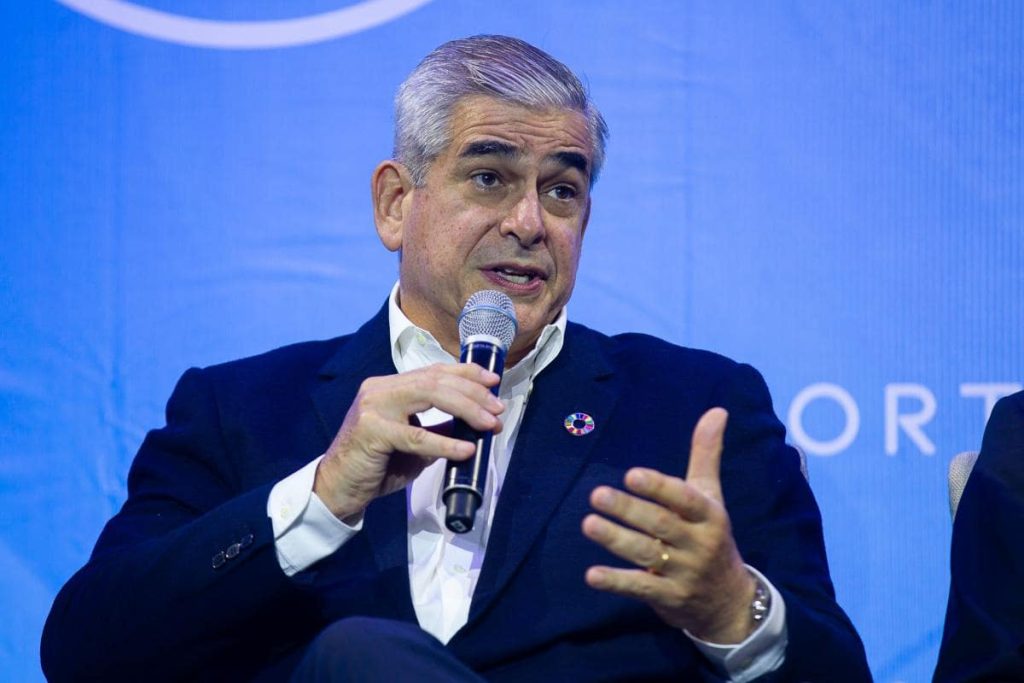AC Infrastructure and the Global Fashion Group Team Up to Transform Logistics
E-commerce and digital payment platforms are changing the way people purchase goods. These ecosystems give small, medium, and large-scale businesses a space to innovate services for new markets and grow at a faster pace. As the digital economy expands, traditional logistics infrastructure and systems is also undergoing a similar digital transformation to meet the needs of this growing marketplace.
Ayala Corporation, through its wholly-owned subsidiary AC Infrastructure Holdings Corporation (AC Infra), has partnered with Brillant 1257 GmbH & Co. Vierte Verwaltungs Kg, a subsidiary of the Global Fashion Group, the leading online fashion destination for growth markets, to form a technology-driven end-to-end fulfillment solutions company. The joint venture company, Entrego Fulfillment Solutions Inc. (Entrego), is 60% owned by AC Infra and 40% owned by Brillant.
Entrego draws from its strong competence and track record in e-commerce fulfillment solutions, having started in 2013 as ZALORA Philippine’s logistics division. The company takes its name from the Spanish word entregar, which means “to deliver”. “Entrego” literally translates to “he delivered”, which aptly captures the company’s ultimate objective of fulfilling its commitment to its clients.
Entrego intends to build on its expertise in e-commerce logistics and fulfillment solutions and offers an integrated suite of fulfillment services including management of parcel, document and bulky deliveries for B2B and B2C customers.
AC Infra has so far committed 580 Million pesos to grow Entrego into a significant technology-driven fulfilment solutions provider in the Philippines.
Ayala Corporation Chairman and CEO Jaime Augusto Zobel de Ayala sees benefits for the Ayala group with Entrego. He shares “Our business units overlap on several fronts and managing their supply chain and their fulfillment services needs to its customers is one such front where we see Entrego adding value.”
He adds that Ayala’s entry into the fulfillment space “unlocks opportunities for its real estate, banking, telecom, health, automotive, and industrial manufacturing businesses and paves the way for new business models.”
Emerging opportunities for Ayala, as well as the growth of many SMEs, are anchored on having a highly-efficient, reliable, and inexpensive platform to move goods across the archipelago. Entrego is well positioned to meet these expectations with its 45 hubs as of October 2018 covering over 1,500 cities and municipalities all over the Philippines. Since starting operations, Entrego is averaging a 99% on-time delivery rate nationwide, and even
reaches 100% on-time delivery in certain areas.
Patrick Schmidt, co-CEO of Global Fashion Group shared, “We are proud of how the synergy between Ayala and ZALORA Philippines has created a new retail environment that benefits the Filipino consumer and with Entrego, we hope to deliver a positive impact on the country’s fulfilment sector by using technology and data as the main driver. This will unlock huge opportunities for e-commerce and brands in the Philippines.”
Technology-Driven Logistics for a Digital Economy
“We are applying technology to transform the logistics ecosystem. Our intent is to innovate and organize services to achieve better operating and cost efficiencies for the various customers we have, whether large, medium, or small-scale companies,” shared AC Infra CEO and Chairman of the Board of Entrego Rene D. Almendras.
Entrego helps businesses manage their B2C and B2B fulfillment needs by providing customized end-to-end solutions. Its technology backbone enables real-time tracking of shipments, providing clients visibility and peace of mind that goods get to their destination. Entrego’s data-driven approach allows it to provide value-added services and detailed performance analytics, providing business managers valuable decision-making tools.
“With our technology-driven fulfillment solutions, our mission is to enable businesses to grow and allow them to focus on their core competencies by taking on the burden of logistics: that of getting goods from origin to destination economically and efficiently, with more visibility in the supply chain, and better customer experience,” said Entrego’s President Constantin Robertz.
To further support its investment in Entrego, AC Infrastructure will also be building a state-of-the-art e-commerce center to support back office operations. This facility can support the fulfillment of more than 100,000 orders daily when fully operational by the second half of 2019.
Empowering Businesses is Our Fulfillment
Entrego’s technology aims to level the playing field for small, medium, and large-scale enterprises across a broad spectrum of industries and sectors.
Through its ecosystem of relationships with different players in the logistics industry and driven by a dynamic team, Entrego puts itself in a unique position to scale rapidly, move with agility, and respond effectively to the evolving needs of its clients.
From you to there, Entrego delivers.

(In photo, L-R)
Rene D. Almendras, AC Infra CEO and Chairman of the Board of Entrego
Constantin Robertz, President of Entrego
###
AC Infrastructure Holdings Corp. (AC Infra) is the Ayala group’s wholly owned subsidiary that pursues projects to support the growing infrastructure needs of the public and private sectors. AC Infra meets the country’s urgent needs for efficient, reliable, safe, and sustainable modes of mass transportation, transport services, and fulfilment solutions services.
For further inquiries, contact:
Ken Lerona
Head for Marketing and CSR, Entrego
ken.lerona@entrego.com.ph
Joseph Anthony M. Quesada
Corp. Comm. and Sustainability Manager, AC Infra
quesada.jam@acinfra.com.ph
May Florentino
Senior Manager, Corporate Communications
Ayala Corporation
florentino.mpp@ayala.com.ph




